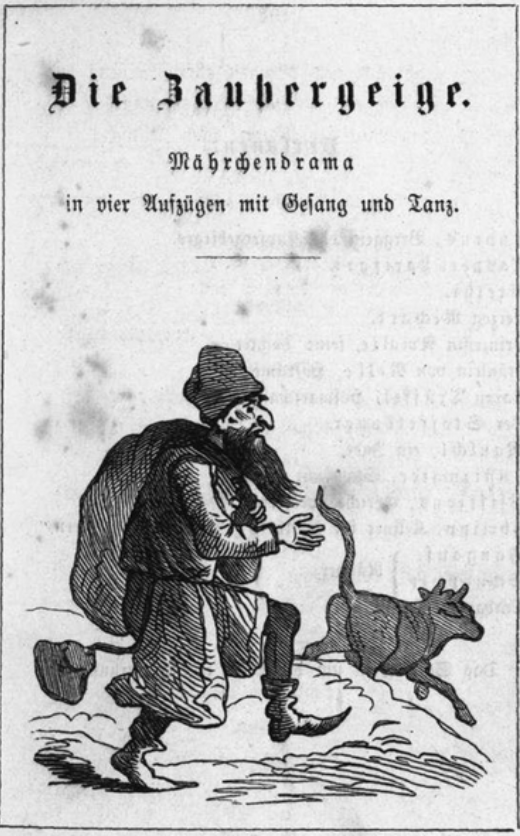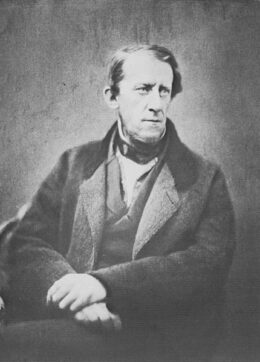
Printed
43 pages
Author(s)
Die Zaubergeige
Die Zaubergeige is one of Pocci’s most famous plays. It borrows themes and even tunes from The Magic Flute and skillfully blends it with elements taken from folk literature – particularly the legend of Rübezahl of the Giant Mountains – and from high literature, as the epilogue features a quote from the second part of Goethe’s Faust. In this play, Pocci engages in parody and caricature, as he mocks romantic music and the work of Giacomo Meyerbeer (1791-1864) – a very famous composer at the time. His satire of German princely courts is reminiscent of some of novels and short stories by Ernst Theodor Amadeus Hoffman (1776-1822). Both him and Pocci were interested in puppet theatre and had a gift for hand-drawn caricatures and musical composition. The play caricatures the Jewish character Mauschl (the verb mauscheln was used to stigmatise the way members of the Jewish German-speaking community talked). As German antisemitism spread, the caricature became particularly problematic: in 1935, Die Zaubergeige was adapted into an opera by Werner Egk (1901-1983) – one of the most prominent composers under the Nazi regime.
A seducer is punished
Kasperl leaves his wife Grete and resigns from his job at Stoffelbauer’s farm to explore the world. On the road, he meets the genius of the mountains, Cuivre Curpus. The latter is dressed as an old man and Kasperl gives him three of his copper coins. Cuprus thanks him and gifts him a magic violin in turn. Kasperl uses it to make the Jew Mauschl dance until he faints, after discovering that he was embezzling money. Two robbers – Fangauf and Schnapper – take advantage of the opportunity to steal Mauschl’s purse. Kasperl is then introduced to Duke Richard’s court as the violinist Spagatini, and he seduces the Duke’s daughter, Princess Amalie, as well as her lady-in-waiting. One day he is caught serenading them by night, but he makes the guards, the whole court, the princess and the lady-in-waiting dance. However, he is brought to justice and accused by Mauschl of having stolen the purse. As a result, he is sentenced to death. At the gallows, he asks to play one last tune on his violin, in the hope of making everyone dance and escaping. But Cuprus appears with Grete. He takes away the magic of the violin but promises to save Kasperl’s life, on condition that he goes back to his wife.
First performance
Münchner Marionettentheater
Publications and translations
Franz von Pocci: Lustiges Komödienbüchlein, drittes Bändchen, München, J.J. Lentner, 1869, 187-250
